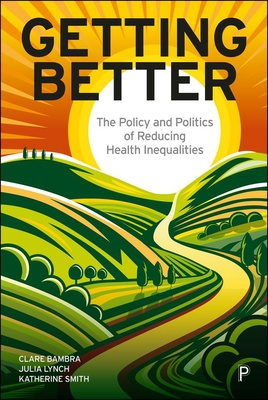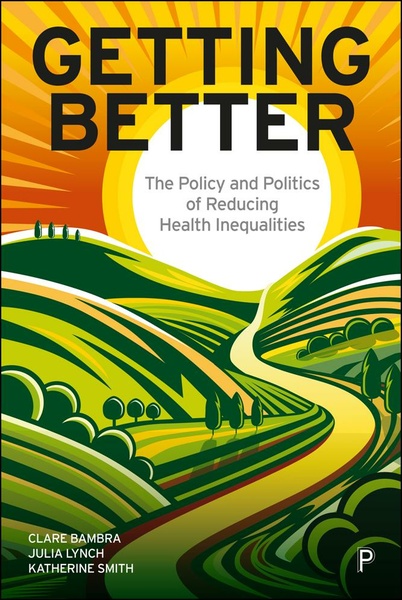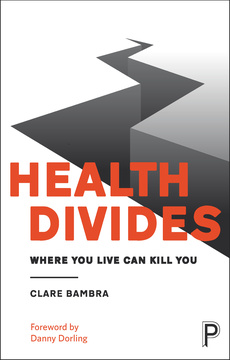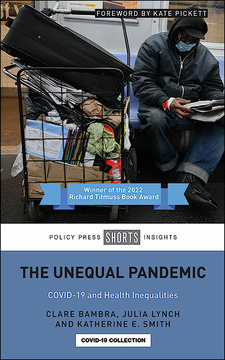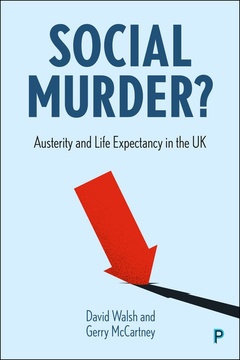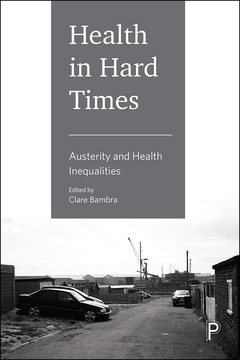Getting Better
The Policy and Politics of Reducing Health Inequalities
By Clare Bambra, Julia Lynch and Katherine Smith
Published
May 27, 2025Page count
208 pagesISBN
978-1447372868Dimensions
234 x 156 mmImprint
Policy PressPublished
May 27, 2025Page count
208 pagesISBN
978-1447372875Dimensions
234 x 156 mmImprint
Policy PressPublished
May 27, 2025Page count
208 pagesISBN
978-1447372882Dimensions
234 x 156 mmImprint
Policy PressAvailable open access digitally under CC-BY-NC-ND licence.
Health inequality has reached a crisis point. Your income or hometown can have a devastating impact on how well and how long you live. This injustice, exacerbated during the COVID-19 pandemic, continues as the cost of living rises and other sources of inequity grow. What can be done to make things better?
This book, written by the authors behind the award-winning The Unequal Pandemic, explores successful international case studies of governments reducing health inequalities – from the USA and Brazil to Germany and the UK – stretching over fifty years from the 1960s to the 2000s.
Essential reading for students and scholars of public health and the social sciences, and for health and social care professionals and policy makers, this book demonstrates that reducing health inequalities is possible and provides a roadmap for today’s governments to follow.
“Recognition that the key determinants of health inequalities lie in the realm of politics and macroeconomics can foster world-weariness, even despair – what to do? This book is an evidence-based counter to despair. It shows, using four case studies, that health inequalities have been reduced by political and social policies. The key message is to continue these life-enhancing policies.” Sir Michael Marmot, UCL Institute of Health Equity
“As surely as movements and governments that foster economic, social and participatory democracy reduce health inequities, neoliberal and reactionary regimes increase them. This timely must-read book, examining the US, Brazil, Germany and England, explains why.” Nancy Krieger, Harvard T.H. Chan School of Public Health
Clare Bambra is Professor of Public Health at the Population Health Sciences Institute, Newcastle University.
Julia Lynch is Professor of Political Science at the University of Pennsylvania.
Katherine Smith is Professor of Public Health Policy at the University of Strathclyde.
Introduction: The holy grail of reducing health inequalities
2. The Great Society: social reform and health inequalities in the United States
3. Vote early, vote often: democratisation in Brazil and health inequalities
4. What belongs together will grow together: German reunification and health inequalities
5. Things can only get better: England’s Health Inequalities Strategy
6. Waxing and waning: the four levellers of health inequalities
7. Conclusion: The politics of health inequalities







